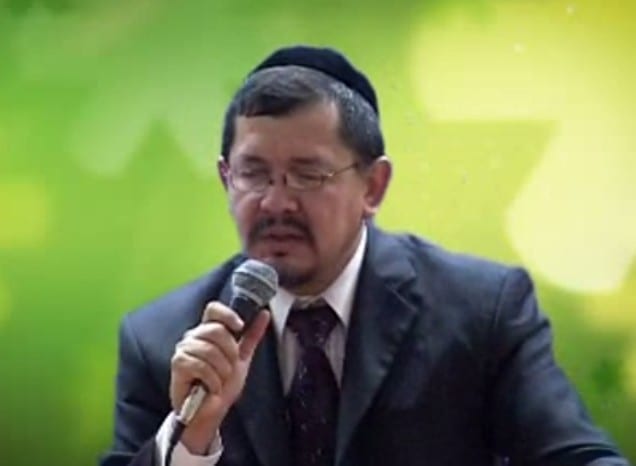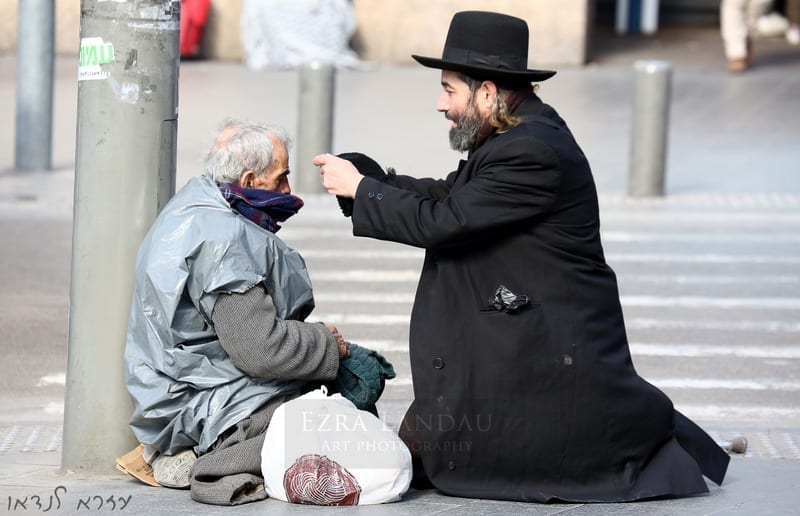On an island in northern Japan, at the foot of a low mountain chain, sits the tiny village of Yobito, Hokkaido. It’s home to several hundred people who eke out a living as fishermen and farmers, and is centered around a small Buddhist temple. It’s not the most common place for a Jew to find Hashem, but for Jason Katz*, the words of the local Buddhist priest sent him on a mission to return to his roots
Jason went to Japan as an exchange student during high school and lived with a family in Yobito. His host father Mitsuo Kiyosu is a 49th generation Buddhist priest and the spiritual leader of the village. Jason developed a deep rapport with him and over the years has had many deep conversations with him. He has always been impressed by the priest's wisdom, his understanding of the purpose of life and his respect for all people.
Years earlier during his training to become a priest, Mitsuo Kiyosu had studied with a Christian minister and a Rabbi. He therefore had some understanding of each religion, but never pushed Jason towards any particular observance.
After college Jason lived in Japan for seven years and frequently visited the Kiyosu family. It was finally time to return to the United States but before leaving he paid one more visit to see them.
For Jason it was a time of great soul searching as he was trying to figure out what to do with the rest of his life.
While sitting together with his host father in the kitchen sipping green tea, Jason unburdened the challenges he was facing. The conversation turned from his job search to his larger search for direction in his life.
“My host father realized that I was searching not only for a job, but for spirituality,” Jason said. “He told me that when he dies 'there will be such and such spirit in the next world who will save me. I live this life with confidence because I know I will be saved when I die. On the other hand, a Christian person has Jesus. A Christian person has Jesus, who is a bridge to the Jewish G-d. That's how he will be saved when he dies.'”
“'But you, you are a Jew. You have a direct connection to the Jewish G-d. What more are you searching for?'”
That comment opened Jason's eyes. He grew up hearing about G-d as the Judeo-Christian G-d, but he had only ever heard Christians speak about G-d. His host father said No! It is not Christianity that has a direct connection to G-d, and not even Buddhism. It is the Jewish people who have a direct conduit to G-d.
“He woke me up to the fact that I have a unique place in this world as a Jew and an intrinsic relationship to G-d,” Jason said. “G-d had been just a philosophical concept to me and the last thing I was searching for.”
While Jason didn't initially recognize it, something had changed inside him.
“At that time I still knew virtually nothing about G-d, nothing about Torah, but my heart was different, like a seed was planted inside,” Jason said.
Jason returned to Florida and a few months later a family friend recommended a class given by a local Rabbi. He soon began going each week. The class focused on the weekly Torah portion in particular and the Jewish perspective on life in general. Jason was stunned by what he heard.
“It was so profound, so deep,” Jason said. “I had been searching my whole life around the world. I had been to missionary camps, spoke to Buddhist priests and Hare Krishnas. I had no idea that there were such depths in Judaism.”
Over the next two years the Rabbi spoke often about G-d and G-d's relationship to the Jewish people, and it gave new life to that seed inside Jason. The class helped Jason acknowledge his personal connection to G-d, which gave him the reason to begin keeping mitzvot and delving into Jewish learning.
Throughout Jason's journey the seed planted by the Buddhist priest was forever in him, pushing him forward to find the truth.
How does one take such a path? How does one find traditional Judaism through the direction of a Buddhist priest? Hashem put in every Jew an innate desire to look for spirituality and connect with larger truths. He hopes we'll use this desire to find our place in Judaism, but sadly, scores of unaffiliated Jews find spiritual fulfillment in other religions. Out of the masses that try other religions, a small number find their way back to Judaism through the experience.
This trend is actually predicted in the Torah. Before his death Moses reminded the Jews of the blessings and curses that would befall them based on their future behavior:
“And it will be that when all these things come to pass – the blessing and the curse, which I have placed before you, then you will return to your heart in the midst of all the nations where G-d your G-d dispersed you.” (Devarim 30:1)
The Sforno biblical commentary, written 500 years ago, has an amazing explanation of these words. As explained by Rabbi Ezriel Tauber in the book Days Are Coming, the Sforno writes that Jews will join other nations and religions, and will eventually find their way from there to Judaism:
“You are going to probe and research the destructive nature [of the lifestyle of those nations amongst whom you live], and you will reflect and be struck by the sharp contrast between truth and falsehood. And with this you will perceive how far you are from G-d and you will be lifted up [out] of the knowledge and practices that are not according to His Torah.”
The Torah predicts that there will be a mass return of Jews to Judaism, and many of them will find their way back through other religions. That's precisely what happened with Jason. G-d
knows what catalyst each of us needs to start us on our journey home, and He sends the right person in exactly the right time. The irony with Jason's story is the perfect person was a Buddist priest halfway around the world.
Excerpted from the book Homeward Bound: Inspiring Stories of Return (Feldheim Distribution) by Rabbi Michoel Gros, a collection of dramatic and uplifting stories of Jews returning to their roots and discovering hidden strengths (available in local bookstores or online at http://www.feldheim.com/homeward-bound.html)





